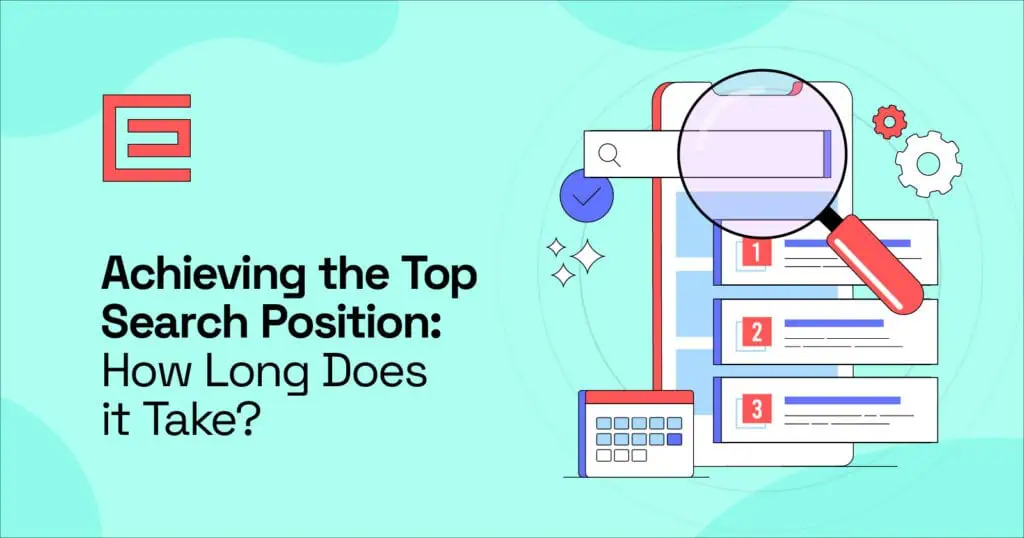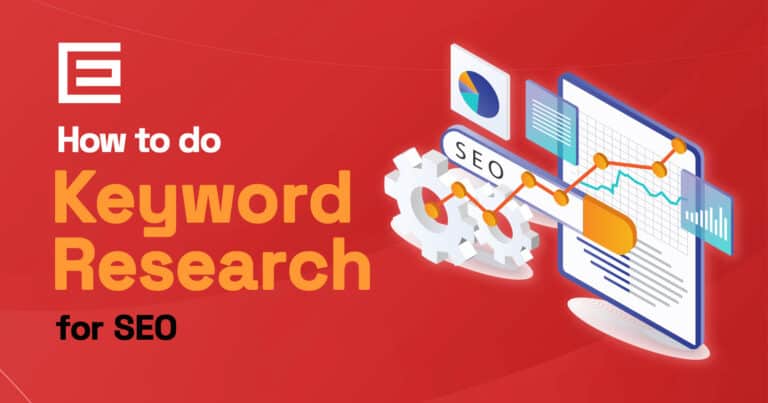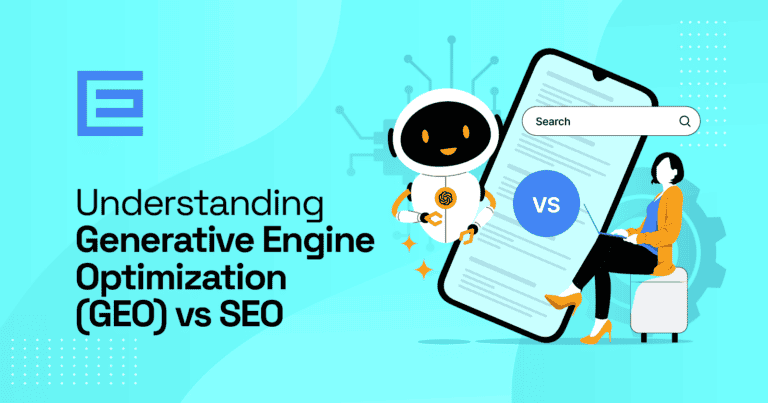- 1Reaching the Top Search Position in Search Queries
- 2Key Factors That Influence Ranking Timeframes
- 3How Long SEO Improvements Typically Take
- 4SEO Milestones to Track Progress
- 5Tips to Accelerate Ranking Progress
- 6Why SEO is a Long Term Investment
- 7Improve Your SEO Today with the Experts at TheeDigital
Regarding search engine optimization, one of the most common questions clients ask is, “How long does SEO take to reach the top of search results?”
While the goal of ranking #1 on Google is crucial for increasing visibility, traffic, and ultimately conversions, the journey to get there can vary significantly. From industry competition and keyword difficulty to the quality of your website’s content, several factors determine how fast or slow results come.

In this guide, the digital marketing experts at TheeDigital are breaking down the SEO timeline, and the key elements that influence how long does SEO take and how to achieve SEO results.
Reaching the Top Search Position in Search Queries
Reaching the top search position on Google or other search engines means that your website or web page appears at the very top of the organic search results for specific keywords. This coveted spot isn’t just about visibility—it’s about credibility and relevance. Ranking #1 for your target keyword can increase your click-through rate (CTR), as users are more likely to click on the first few results they see.
By building an SEO campaign that includes the consistent effort of optimizing low-competition keywords and writing both short and long-form content, the better your chances of increasing your SEO search results.
Key Factors That Influence Ranking Timeframes
Achieving the top search position takes time, as various factors influence how quickly a website can climb the rankings. A solid SEO plan gradually improves visibility, but aspects like industry competition, keyword selection, website history, content quality, and budget each play a key role. Here’s a closer look at ranking factor influences and how they impact your ranking timeline.
Competition in Your Industry
The competitiveness of your industry greatly affects ranking speed. Highly competitive fields like finance and e-commerce are crowded with established players investing heavily in SEO, making top rankings a longer-term goal. Niche markets, however, often offer quicker paths to high rankings. For businesses in crowded industries, specialized content, and unique keywords can help build initial traction and direct traffic to your page.
Keyword Difficulty and Search Volume
The difficulty and volume of your target keywords directly impact ranking timelines. High-volume keywords with lots of competition are harder to rank for, while long-tail keywords with lower difficulty can bring in relevant traffic sooner. Building authority with easier, niche keywords vs generic keywords can set a foundation for ranking on more challenging terms down the road.
Website Age and Authority
Established websites with strong SEO histories often rank faster than new sites. Older sites have built authority over time, which Google factors into rankings. For new websites, building authority and trust can take months of consistent SEO work, content creation, and link building. Established sites that create high-quality content generally see faster improvements due to their credibility.
Content Quality and Relevance
High-quality content is essential for top rankings. Search engines favor sites that consistently provide valuable, up-to-date information. Publishing fresh, relevant content shows Google that your site is active and attentive to user needs. Detailed, well-researched content that addresses user search intent can significantly improve rankings, especially when it targets high-value keywords and uses engaging media.
SEO Strategy and Budget
The effectiveness of your SEO strategy and budget heavily influence ranking speed. A comprehensive strategy that includes on-page and technical SEO changes, backlink profile building, and regular content creation is vital for long-term results. Larger budgets can support faster growth, especially in competitive industries. However, even with a smaller budget, a strategic, high-impact approach can drive meaningful progress to your SEO timeline.
How Long SEO Improvements Typically Take
If you’re wondering how long SEO takes to implement improvements in ranking, the timeline can vary. A lot of businesses can start seeing improvement in organic traffic within just a few weeks of implementing a technical overhaul or working hard to find keywords and add content relevant for garnering qualified leads.
Realistic Expectations for How Long It Takes to Improve SEO Results
However, with small changes over time, businesses can start seeing traction within 3 to 6 months. This initial period is ideal for measuring progress in organic traffic and rankings, especially for low- to medium-competition keywords. Between 6 to 12 months, more noticeable ranking improvements often appear as established SEO practices gain traction. For competitive industries or high-volume keywords, reaching top positions can take a year or more, with ongoing optimization needed to sustain rankings in an evolving digital landscape.
However, the more effort a company puts into its SEO success, especially when guided by the professional help of SEO experts with the tools needed to perform a skilled website audit, a business can start to see improvements immediately.
SEO Milestones to Track Progress
Tracking progress through specific SEO milestones is essential for understanding how well your strategy is performing and identifying areas for improvement. Here are some key SEO milestones that indicate you’re moving closer to your goal of reaching the top search positions on Google and other search engines.
Keyword Ranking Improvements
One of the first signs that your SEO strategy is working is improved keyword rankings. Tracking how your targeted keywords move up in the search results over time helps measure the effectiveness of your content and optimization efforts. While minor fluctuations are normal, a consistent upward trend in rankings for primary and secondary keywords shows that your strategy is heading in the right direction.
Increased Organic Traffic
Organic traffic growth is a clear indicator of SEO success. As your pages rank higher for relevant keywords, more users will find your site through search engines. Monitoring organic traffic through SEO tools like Google Analytics helps you see which pages and keywords drive the most traffic. This metric is particularly useful for understanding what types of content resonate with your audience and where you may want to focus future efforts.
Higher Engagement Metrics
Engagement metrics like CTR, bounce rate, and dwell time provide insight into how users interact with your site after they find it. A high CTR from search results indicates that your title tags and meta descriptions are compelling and relevant. Meanwhile, low bounce rates and longer dwell times suggest that users find your content valuable and are engaging with it. These engagement metrics can positively impact your rankings as they signal to search engines that your content is meeting user needs.
Conversions and Leads
Ultimately, the goal of SEO is not just to attract visitors to your website but to convert them into customers or leads. Tracking conversions, such as form submissions, product purchases, or phone calls, shows that your SEO efforts are delivering value to your business. When conversions from organic traffic increase, it’s a strong indicator that you’re targeting the right audience with relevant content.
Backlink Growth and Quality
Earning backlinks from reputable websites is essential for building site authority and improving rankings. Monitoring the number and quality of new backlinks over time helps gauge the success of your link-building efforts. High-quality backlinks signal to search engines that your content is trustworthy and authoritative, which can contribute to higher rankings.
Tips to Accelerate Ranking Progress
Accelerating your SEO progress requires focused optimization of relevance, authority, and user experience. Here are actionable tips to reach top search engine positions faster.
Optimize for User Intent and Experience
Align your content with user intent by answering common questions and providing clear, helpful information. Create a smooth user experience with easy navigation, mobile responsiveness, and fast load times to keep users engaged and lower bounce rates, signaling search engines that your content is valuable.
Invest in Quality Backlink Building
Backlinks from credible sites are essential for building authority. Pursue links from relevant, reputable sources through guest posts, industry mentions, and partnerships. High-quality backlinks signal trustworthiness to search engines, improving your chances of ranking higher.
Prioritize Mobile and Page Speed Optimization
With most searches now on mobile, a mobile-friendly site is critical. Use responsive design and optimize page speed to provide a smooth experience. Faster load times keep users on your site, reducing bounce rates, which can positively influence rankings.
Publish Fresh, Relevant Content Regularly
Consistently adding new, valuable content keeps your site active and appealing to search engines. By addressing current topics and providing deep insights, you create more opportunities to rank higher for relevant keywords and engage visitors.
Leverage Local SEO if Applicable
For location-specific businesses, local SEO boosts rankings in local searches. Optimize your Google My Business profile, ensure consistent local listings, and gather positive reviews. This approach is particularly effective for attracting local traffic to small health care businesses, law firms, and other niche markets.
Use Structured Data Markup
Structured data, or schema markup, helps search engines interpret your content, increasing your chance of appearing in rich results like snippets and FAQs. Using structured data for products, FAQs, or local information can enhance visibility and drive clicks, accelerating your ranking progress.
Implement the Use of SEO Tools
Using the right tools can make all the difference in accelerating your website’s traffic and search engine rankings. From tracking performance to uncovering keyword opportunities, SEO tools provide valuable insights that drive effective strategies:
- Google Search Console: Offers insights into visibility, indexing, and technical SEO issues to keep your site performing well.
- Google Analytics: Tracks user behavior, traffic sources, and conversion data, giving you a full picture of what’s working.
- SEMrush: Helps with keyword rankings, content gap analysis, and site audits, optimizing your strategy.
- Ahrefs: Provides backlink analysis, competitor insights, and top-performing content data for better link-building and visibility.
- HubSpot: Combines CRM, content management, and social media tools to streamline content creation, engagement, and lead tracking, supporting both SEO and marketing efforts.
- Social Media Management: Drives traffic and boosts brand visibility with regular posts on platforms like Facebook and LinkedIn, while tools like Hootsuite streamline scheduling and engagement tracking.
Professional SEO Agency Guidance
One of the best tips for speeding up how long SEO takes effect for search rankings, partnering with a professional SEO agency can help with both on-page and off-page efforts. Professional SEO marketing specialists, like our team at TheeDigital, amplify the impact of relevant websites ranking higher on Google.
Experienced agency professionals interpret complex data, craft tailored strategies, and implement best practices, guiding your business toward sustainable growth. Hiring an SEO team not only leverages tools effectively but also provides a human touch—offering strategic insights, monitoring results, and adapting to algorithm changes to keep your site competitive.
Why SEO is a Long-Term Investment
SEO is a long-term investment because it builds sustainable growth, credibility, and visibility over time. Unlike paid ads that provide immediate but temporary results, SEO establishes your site’s authority gradually, which leads to lasting rankings and continuous organic traffic.
It Takes Time to Implement a Successful SEO Strategy
Ranking algorithms prioritize high-quality, relevant content, trustworthiness, and consistent user engagement—all of which require ongoing effort. A successful SEO strategy involves regular updates, link building, and optimizing for evolving search trends and algorithm changes. As you maintain and improve your SEO, your site remains competitive and visible, providing long-term value by consistently attracting new users and driving conversions.
Long-Term Efforts Equal Sustainable Quality and Value
The impact of SEO efforts compounds over time. Every piece of quality content, each backlink, and every technical optimization adds cumulative value, enhancing your site’s overall performance. By treating SEO as a long-term strategy, you’re setting up your business for sustained growth, allowing your website to keep delivering results well beyond the initial investment period.
Improve Your SEO Today with the Experts at TheeDigital
Achieving top search rankings requires a strategic, long-term approach, and the right team can make all the difference. At TheeDigital, our SEO experts have the experience and tools to drive real results for your business. Whether you’re looking to build a strong foundation or refine your existing strategy, we’re here to help you navigate every step of the SEO process.
Reach out to TheeDigital today to schedule a consultation and comprehensive website audit to see how your site ranks against competitors, and let’s work together to grow your online presence and achieve lasting results.
Tags: Business • Digital Marketing • Strategy & Consulting






